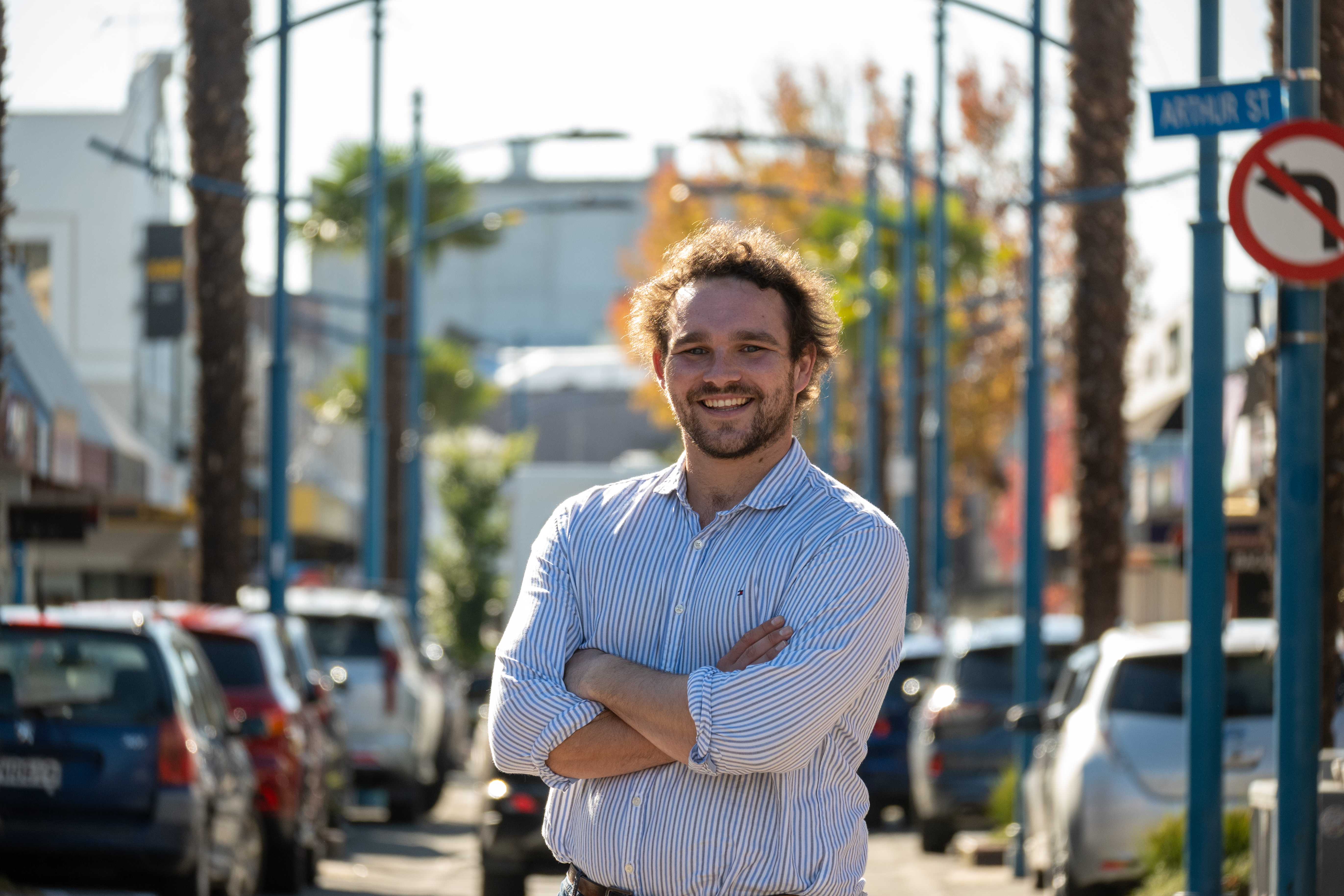Great minds better together for climate change

Pyramid Farm’s David Dawkins shows Labour MP Damien O’Connor and Climate Action Marlboroughs Catherine van der Meulen and fellow guests an example of their Stage Two integrated fenced vines. Photo: William Woodworth
Tackling the impacts of climate change has seen people forge new connections with a common goal in mind.
Climate Action Week Marlborough brought people together to discuss ways in which positive change can be made.
Over five days, the event saw cross-industry connections made as attendees listened to expert opinion on a range of environmental issues.
From financing climate economic and energy changes to nature-based solutions and productive circularity, a wide range of areas were investigated.
The most valuable takeaway says organiser Catherine Van Der Meulen was the collaboration.
“I think people enjoy the forum format, with collective, connective educational opportunities across industries all in one place,” she says.
“Each day had a keynote speaker, collaboration sessions, field immersion experiences and round table discussion instead of passive talks, with the formats being a unique opportunity to bring the entire regional economy together to the discussion table for solutions that can benefit everyone.
“There’s a real community appetite for this, from the engagement that Marlborough and New Zealand wide businesses bring, to having MP’s Stuart Smith and Damien O’Connor attend and actively contribute to not just their sections, but throughout their days.
A key site visit was a Wednesday tour around Pyramid Farms, where farm owner Chris Dawkins, son David and Southern Valleys Viticulture’s Richard Hunter demonstrated how farming operations secure their future through actions today.
“With our operations we follow an integration strategy, matching land use to what does best on the land itself – sheep, cattle, dairy support, viticulture, pine forestry, and native replanting – but also having them all work as one,” Chris explains.
The integrated use approach meant Pyramid sequestered 1700t and emitted 1100t of equivalent carbon dioxide across all their greenhouse gas emissions last year.
“Recognising market advantages and diversification means more future proofed operations - there’s also bees, and we were going to make corks, but our plantings coincided with the invention of the aluminium screw top.
“There’s obvious struggles, but farmers aren’t the enemy we can be made out to be, and we want to be involved in finding solutions,” says Chris.
Past projects to come out of previous events include net zero building techniques and netting waste solutions.
Chris says he would like the chance to work with fellow Climate Action regional boards throughout New Zealand – but that will take more local investment.
Southern Valleys’ Viticulture Richard Hunter is working with Chris on Pyramid’s vineyard developments.
The pair hope to find ways to continue improving soil quality.
“Chris gave me the opportunity to develop some of Marlborough’s most well-kept soil, which we’re continuing to find ways in improving as soil quality makes better fruit and wines,” he explains.
“By balancing mowing lengths, using sheep instead in January, and building in fences for our January grazing rotation, we’ve kept weeds controlled and retained more soil moisture.
“No matter the industry, doing the research into your industry and championing little positive adaptions make real long running differences”.
